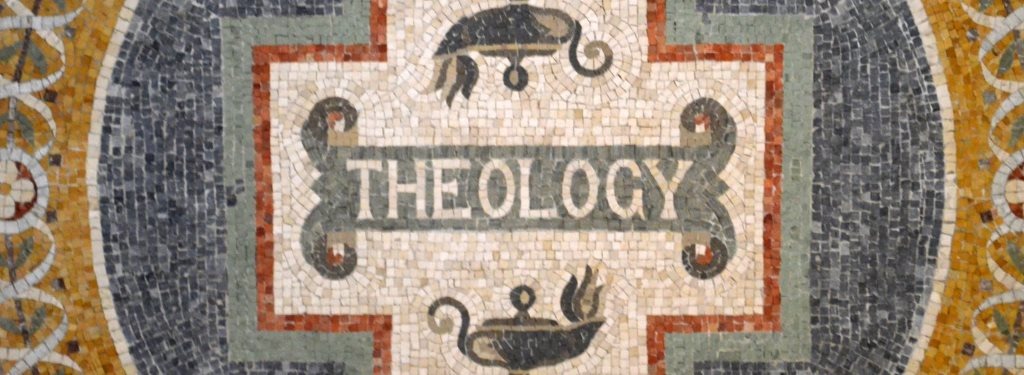Understanding Systematic Theology: Key Concepts and Differences
6/16/20254 min read


Understanding the Differences in Systematic Theology
Systematic theology is the organized study of biblical doctrines, aiming to present the teachings of Scripture in a coherent, structured way. While all Christians affirm certain core beliefs—such as the Trinity, the authority of Scripture, and salvation through Christ—systematic theology reveals considerable diversity in how believers understand specific doctrines. These differences often stem from varying interpretations of Scripture, church traditions, historical contexts, and philosophical frameworks.
Below is an overview of key areas within systematic theology, highlighting how different traditions or denominations approach them.
1. The Doctrine of God (Theology Proper)
Most Christians agree that God is eternal, omniscient, omnipotent, omnipresent, holy, just, and loving. However, there are nuanced differences:
Classical Theism (held by many Catholics, Reformed, and some evangelical traditions) emphasizes God's immutability, impassibility, and timelessness.
Open Theism (found in some evangelical circles) argues that God voluntarily limits His foreknowledge and power to allow for genuine human freedom.
Process Theology (often seen as more liberal) sees God as evolving with creation and being affected by it.
These views differ not in the existence of God but in His nature and interaction with time and creation.
2. The Trinity: Father, Son, and Holy Spirit
The doctrine of the Trinity affirms that God is one in essence and three in persons: the Father, the Son, and the Holy Spirit. Yet even within orthodoxy, there are different emphases.
God the Father
Universally acknowledged as the Creator and Sustainer.
Some traditions (e.g., Eastern Orthodoxy) stress the monarchia (the Father as the source of the Son and Spirit).
In the West (e.g., Roman Catholicism), the Father is seen as co-equal with the Son and Spirit in a mutual, eternal relationship.
God the Son (Christology)
Nicene Orthodoxy holds that Jesus is fully God and fully man.
Reformed and Evangelical views focus on penal substitution—that Christ died to bear the punishment for sin.
Eastern Orthodoxy emphasizes Christus Victor, where Christ’s death defeats death and the devil.
Some liberal theologies may downplay or reject Christ’s deity or bodily resurrection, departing from historic orthodoxy.
The Holy Spirit (Pneumatology)
All orthodox traditions affirm the Spirit’s role in regeneration, sanctification, and empowerment.
Pentecostal and Charismatic traditions stress the gifts of the Spirit (speaking in tongues, healing, prophecy).
Reformed theology tends to see the Spirit’s work more in terms of internal conviction and the application of Scripture.
3. Salvation (Soteriology)
The doctrine of salvation varies widely among traditions. While all Christian groups affirm that salvation comes through Christ, they disagree on the means and process.
Roman Catholicism
Salvation involves faith, baptism, participation in the sacraments, and cooperation with grace.
Justification is both a declaration and a process.
Mortal sins can result in loss of grace, but confession and penance restore the believer.
Protestantism
Lutherans and Reformed emphasize sola fide—justification by faith alone.
Reformed theology (Calvinism) includes doctrines like unconditional election, limited atonement, and irresistible grace.
Arminians and Wesleyans believe in free will, prevenient grace, and the possibility of falling from grace.
Eastern Orthodoxy
Views salvation as theosis—becoming partakers of the divine nature.
Emphasizes synergy between divine grace and human cooperation.
Despite their differences, all traditions affirm the centrality of Christ’s atoning work.
4. Eschatology (Doctrine of Last Things)
Eschatology deals with the end times, and this area reflects significant diversity.
Premillennialism
Belief in a literal thousand-year reign of Christ on earth after His return.
Dispensational Premillennialism includes the Rapture, a seven-year Tribulation, and a literal Millennium. Common in many evangelical churches.
Historic Premillennialism is similar but does not separate the Rapture from the Second Coming.
Postmillennialism
Believes the world will gradually become more Christianized, leading to a golden age before Christ’s return.
Common in certain Reformed traditions, especially among optimistic kingdom-minded theologians.
Amillennialism
Interprets the Millennium symbolically, viewing it as the current church age.
Popular in Roman Catholic, Orthodox, and many Reformed circles.
Views on eschatology affect perspectives on the church’s role in society, the interpretation of Revelation, and the urgency of evangelism.
5. The Church (Ecclesiology)
Christians diverge significantly in how they understand the Church's nature, structure, and function.
Roman Catholics teach that the Church is the one true visible institution founded by Christ, with the Pope as its head.
Eastern Orthodoxy sees the Church as a communion of autocephalous (independent) churches united in sacramental and apostolic continuity.
Protestants generally emphasize the invisible Church (true believers across denominations) and vary widely in governance—Episcopal, Presbyterian, or Congregational.
Questions of sacraments/ordinances, apostolic succession, and authority play significant roles in these differences.
6. Scripture (Bibliology)
The authority and interpretation of Scripture are foundational to all theology, but interpreted differently:
Evangelicals and Reformed Christians typically hold to sola Scriptura—Scripture alone is the ultimate authority.
Catholics and Orthodox affirm that Scripture and sacred Tradition together convey divine revelation.
Liberal and progressive theologians may see the Bible as a primarily human product, open to reinterpretation in light of modern ethics and science.
Conclusion
Systematic theology provides a framework for understanding the teachings of the Christian faith, but even within Christianity, there are many legitimate theological perspectives. While some doctrines are essential and non-negotiable—such as the Trinity and the resurrection of Christ—others allow for respectful disagreement among believers. Understanding these distinctions not only deepens one's own faith but also promotes unity amid diversity in the body of Christ.
Ultimately, theology should not be an abstract academic exercise but a means of loving God more deeply and living faithfully in His world.